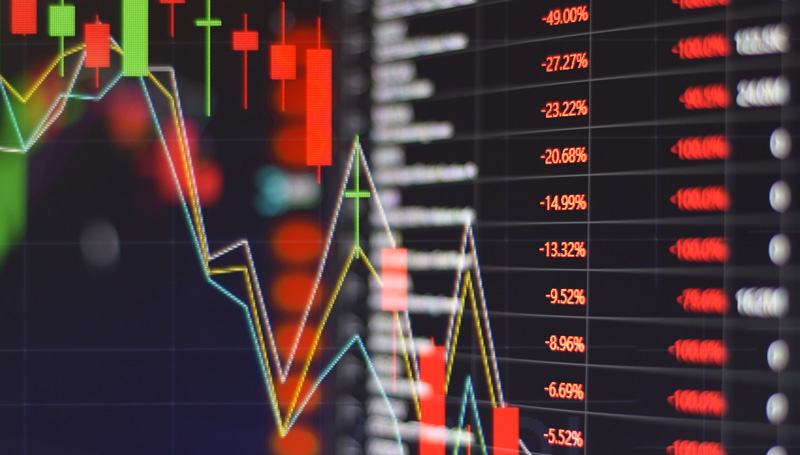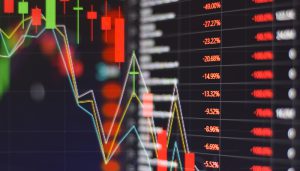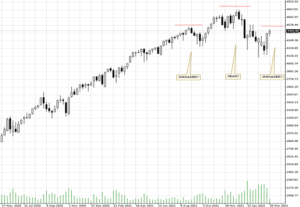

23.03.2022 – The current situation on Wall Street is pretty much like 2008, at least according to the U.S.-based investment firm RIA Advisors. In terms of the chart, a long-term shoulder-head-shoulder formation was formed in the S&P 500 back then – just like now. The question of all questions for investors and traders is: Will there be a recession or not?
RIA Advisors is a Houston, Texas investment firm with over $1 billion in assets under management – the firm has caught our eye several times for interesting analysis. Reason enough to include the chart note first this time as well. Is the S&P 500 currently forming a shoulder-head-shoulder formation in the weekly chart? Maybe – judge for yourself if you recognize Shoulder-Head-Shoulder.

Source: Bernstein Bank GmbH
In any case, Lance Roberts of RealInvestmentAdvice.com discovered another parallel. In January 2008, Ben Bernanke, then head of the Federal Reserve, said: “The Federal Reserve is not currently forecasting a recession. Last week, current Fed Chairman Jerome Powell told the press: “In my view, the probability of a recession within the next year is not particularly elevated.” At the time, a lot of advisors would have advised buying the dips. Just like now again. And then it did come, the recession – triggered by the subprime crisis, the collapse of Lehman Brothers and Bear Stearns. And the market dipped. The surprise for the market in 2008 was the collapse of major financial institutions. Everyone had expected Washington to bail out the systemically important banks.
Recession or not?
This time, it could be the fact that Vladimir Putin is going through with his war of aggression after all. After all, the mood in the market lately has tended toward a cease-fire or even a Ukrainian victory. So what could trigger a recession in the U.S. and the world today? First and foremost, the sharp rise in the price of energy in the wake of an escalating Ukraine war after all. Here are the possible triggers for that: Belarus intervenes in the war. China supplies Russia with weapons and is sanctioned. Russia wins the war, installs a puppet regime in Ukraine. And then imposes an energy embargo on the West as punishment for supporting Kiev. Then Russia attacks the Baltic states to close the corridor to Kaliningrad – and certain rag-tag Western countries ignore this attack on NATO countries. Or, in the event of an escalation, the West wrestles its way to a total boycott of Russian energy.
The Fed Factor
The Federal Reserve could also make its contribution to a recession – precisely because it does not see one. Many investors fear that by raising interest rates too much, it could slow down an economy plagued by covid and the fallout from the Ukraine war. Goldman Sachs, by the way, now sees two big rate hikes of 50 basis points in May and June – up from 25 previously. This is to be followed by four more rate hikes of 25 points this year and two next year. As always, Bernstein Bank is keeping an eye on the matter for you!
Important Notes on This Publication:
The content of this publication is for general information purposes only. In this context, it is neither an individual investment recommendation or advice nor an offer to purchase or sell securities or other financial products. The content in question and all the information contained therein do not in any way replace individual investor- or investment-oriented advice. No reliable forecast or indication for the future is possible with respect to any presentation or information on the present or past performance of the relevant underlying assets. All information and data presented in this publication are based on reliable sources. However, Bernstein Bank does not guarantee that the information and data contained in this publication is up-to-date, correct and complete. Securities traded on the financial markets are subject to price fluctuations. A contract for difference (CFD) is also a financial instrument with leverage effect. Against this backdrop, CFD trading involves a high risk up to the point of total loss and may not be suitable for all investors. Therefore, make sure that you have fully understood all the correlating risks. If necessary, ask for independent advice. CFDs are complex instruments and are associated with the high risk of losing money quickly because of the leverage effect. 68% of retail investor accounts lose money trading CFD with this provider. You should consider whether you understand how CFD work and whether you can afford to take the high risk of losing your money.7
